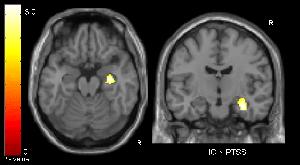
© iStockphotoA diet rich in methionine, an amino acid typically found in red meats, fish, beans, eggs, garlic, lentils, onions, yogurt and seeds, can possibly increase the risk of developing Alzheimer's disease, according to a study by Temple researchers.
A diet rich in methionine, an amino acid typically found in red meats, fish, beans, eggs, garlic, lentils, onions, yogurt and seeds, can possibly increase the risk of developing Alzheimer's disease, according to a study by Temple researchers.
"When methionine reaches too high a level, our body tries to protect itself by transforming it into a particular amino acid called homocysteine," said lead researcher Domenico Praticò, an associate professor of pharmacology in the School of Medicine. "The data from previous studies show -- even in humans -- when the level of homocysteine in the blood is high, there is a higher risk of developing dementia. We hypothesized that high levels of homocysteine in an animal model of Alzheimer's would accelerate the disease."
Using a seven-month old mouse model of the disease, they fed one group an eight-month diet of regular food and another group a diet high in methionine. The mice were then tested at 15 months of age -- the equivalent of a 70-year-old human.

